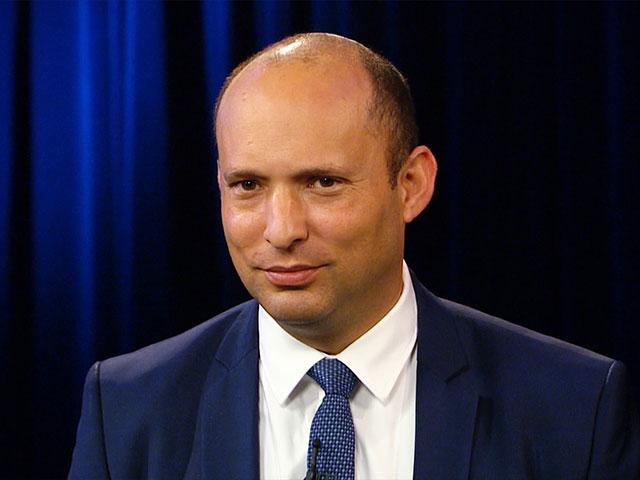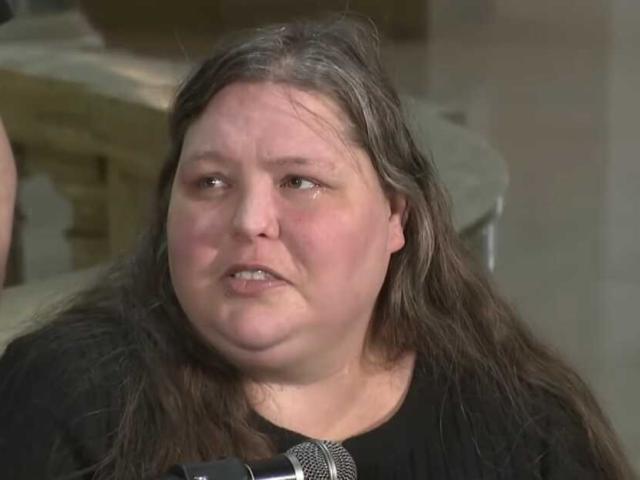JERUSALEM, Israel – A team of Israeli scientists believes it may have found the cure of all cures to finally end cancer.
"We believe we will offer in a year's time a complete cure for cancer," said Dan Aridor, chairman of the board of Accelerated Evolution Biotechnologies Ltd. (AEBi). That's a bold prediction, and some scientists are urging caution. But here's how the treatment would work.
"We didn't want to have another drug like everyone else that would give relief to some cancer patients and then the cancer would come back. We wanted really to cure something like antibiotics," AEBi CEO Dr. Ilan Morad tells CBN News.
The concept is based on the same strategy used to combat AIDS – give the patient a cocktail or mix of medications in order to prevent the disease from becoming resistant to any one drug.
"Because, you know, HIV is very mutagenic creature, same as cancer. This is the problem with cancer. It is very mutagenic and these mutations help the cancer escape the therapy," Dr. Morad explained
The Israeli scientists studied why previous cancer drugs failed. One reason why cancer drugs fail is because they only attack one specific target in or on one cancer cell at a time. Mutations in the cancer cells make the anti-cancer drugs ineffective.
However, their treatment known as MuTaTo, or multi-target toxin, would use several cancer-targeting peptides on a single cancer cell at once, along with a cancer-destroying toxin.
Dr. Morad says his miracle drug uses an anti-cancer cocktail to ensure "that the treatment will not be affected by mutations; cancer cells can mutate in such a way that targeted receptors are dropped by the cancer."
"The main thing here is the multiple targeting. So instead of attacking one target at a time we connect together several peptides and we attack several targets at a time. And because of that, the cancer won't be able – statistically – it won't be able to escape the therapy and this is what happened with AIDS. And this is what would happen here in cancer," said Dr. Morad.
Another reason why cancer drugs fail and the disease returns is because the drugs do not destroy cancer stem cells.
"If it does not completely annihilate the cancer, the remaining cells can start to get mutations again, and then the cancer comes back, but this time it is drug resistant," Morad said.
However, he says MuTaTo is small, flexible, and strong enough to both destroy stem cells and penetrate where other drugs cannot reach.
"This should make the whole molecule non-immunogenic in most cases and would enable repeated administration of the drug," Morad said.
Morad also said MuTaTo will decrease the side effects of taking anti-cancer drugs "dramatically" because the drug does not target non-cancerous cells. Current cancer drugs can destroy non-cancerous cells, thus creating sometimes severe side effects.
Since this cocktail specifically targets cancer cells it isn't as harmful to healthy ones. "The other thing is because this targeting, peptides are connected together and there's what we call the 'affinity effect,' the side effect will be much, much, much lower so it will be like an antibiotic."
Morad said if scientists could come up with 100 different peptides, they believe various combinations could treat each kind of cancer.
MuTaTo is also a personalized drug. That means cancer patients can give a biopsy to the lab. The scientists will analyze it and give the patient a personalized cocktail of MuTaTo that will specifically destroy their particular cancer.
"Each patient will get his own MuTaTo that will fit perfectly his cancer. He would have almost no side effects and in no time be cured completely because the cancer cells would be completely killed – every one of them," he said.
Morad said they have five peptides in the pre-clinical stage. When their research came out, it caught the medical community by surprise because AEBi's experiments have been limited and not published in medical journals.
AEBi has successfully tested the drug in mice. Now, they will soon move forward with clinical trials and would make treatment available within a few years.
If MuTaTo is successful, it has the potential to revolutionize cancer treatment and give hope to the millions of people who are diagnosed each year.
However, some scientists aren't convinced of the AEBi's claims.
Charles Geyer, M.D., associate director for clinical research at VCU Massey Cancer Center told CBN News:
“We all hope that a cure for cancer will be found, but cancer is a complex family of diseases and there is a history of similar claims that have unfortunately spread false hope to many patients and their loved ones. This news is based on limited information from the company and its researchers, and the results from their preclinical experiments have not been published in any peer-reviewed academic journals. I would approach this news with healthy skepticism and also remind people that it typically takes years to translate promising preclinical research from the laboratory to evaluation in the clinic.”
Morad said he was surprised by the criticism, telling CBN News, "At least give me the credit. Ask me what is the mechanism of our MuTaTo or read carefully the first article in The Jerusalem Post to see what I really said."
Morad said they need funding to move their research along faster and would like to collaborate with larger pharmaceutical companies. He also made clear the one goal on his mind.
"I don't care about money. I just want to cure cancer patients."
Did you know?
God is everywhere—even in the news. That’s why we view every news story through the lens of faith. We are committed to delivering quality independent Christian journalism you can trust. But it takes a lot of hard work, time, and money to do what we do. Help us continue to be a voice for truth in the media by supporting CBN News for as little as $1.











 Support CBN News
Support CBN News









